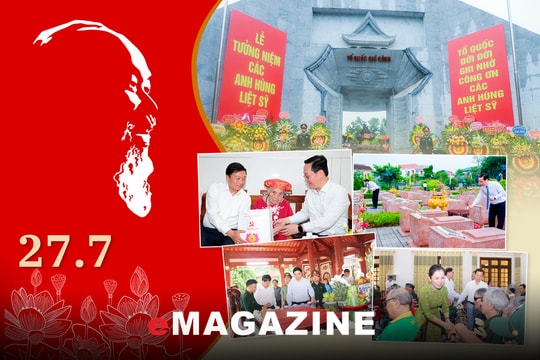Can't rest assured when teammates haven't returned
(Baonghean.vn) - Although he is over 70 years old, veteran Tran Dai Nghia (Block 7, Le Loi Ward, Vinh City) has been thinking about his former comrades who have sacrificed their lives for many years. On the occasion of the 75th anniversary of War Invalids and Martyrs Day, Nghe An Newspaper had him share his special story.
'Once we become special forces, we are determined to never return'
PV:Sir, you were born when the country was still at war and there were millions and millions of young men volunteering to go to war. As for you, you must still have not forgotten those first days of enlistment?
Veteran Tran Dai Nghia:I grew up in Vinh Tan ward, in Ward 2 of Vinh city. Although I grew up in the city, my parents were both farmers, and our family situation was very difficult. My parents gave birth to 11 children, but 8 of them died when they were very young and they could only raise 3. I am the youngest, the 9th child, but I became the eldest son, the patriarch of the family.
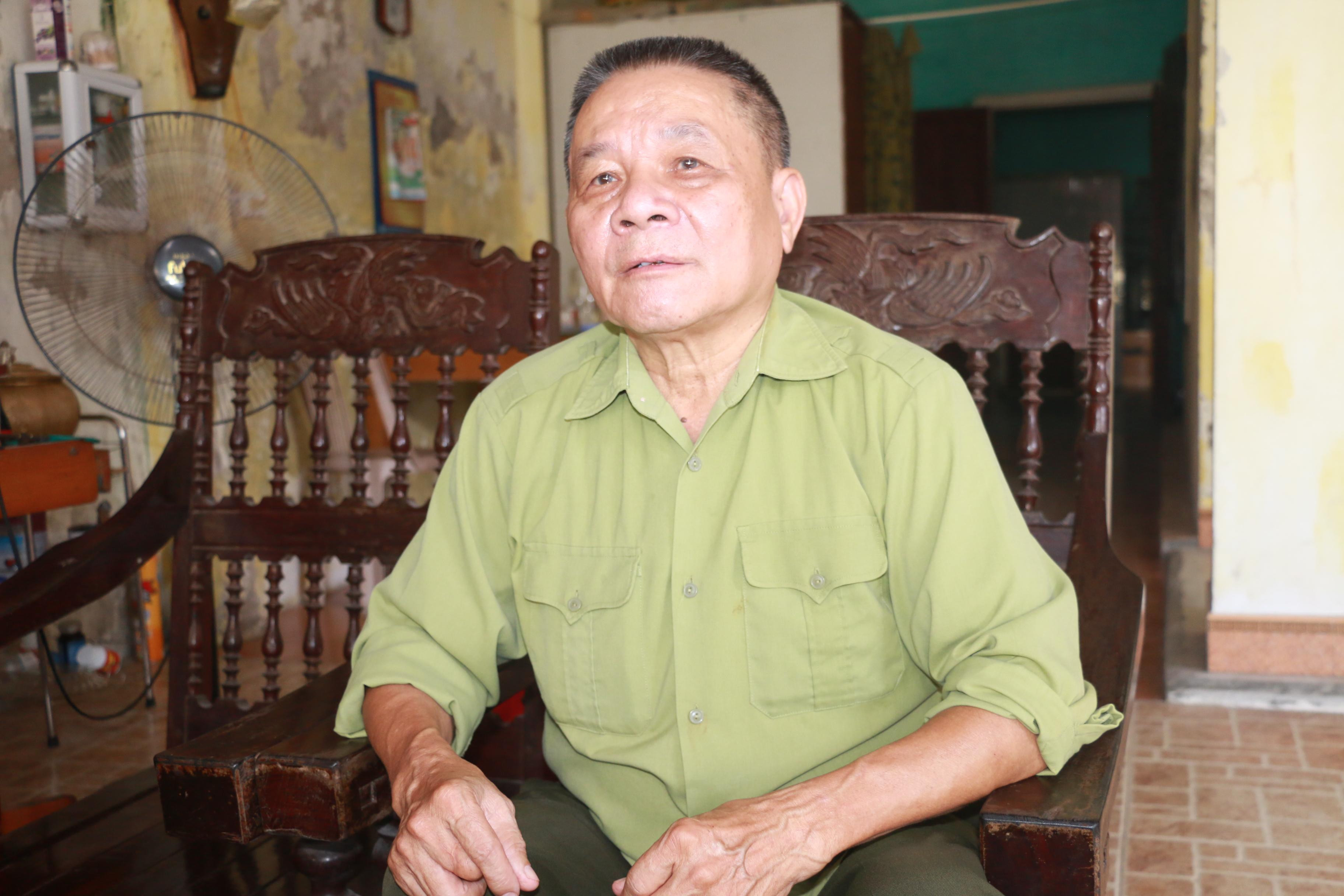 |
| Veteran Tran Dai Nghia is currently the Chairman of the Association of Agent Orange Victims in Le Loi Ward, Vinh City. Photo: My Ha |
My family situation at that time, according to the regulations, was special, not having to go to the battlefield. However, in 1968, when the resistance war against the US entered the fierce stage of "The South calls, the North answers", I still volunteered to prick my arm, write a letter of blood and volunteer to go to battle. When I joined the army, I was only 20 years old and left with the cheerful mood of going to the South to fight the enemy. On the day I left, my parents were also very worried, but because the country was still divided, their personal feelings were hidden so that their children could join the army with peace of mind.
PV:After joining the army, he became a special forces soldier. So, compared to other forces, what is special about his mission?
Veteran Tran Dai Nghia:When I joined the army, I was assigned to the special forces unit and before entering the battlefield, my teammates and I had 1 year of training in Military Region 4 (under D31 special forces). After completing the training course, we were transferred to the 33rd special forces Battalion to supplement the Quang Tri - Thua Thien Hue battlefield.
Our battalion at that time consisted of 5 companies, including 1 reserve company, each company had 64 people. With special missions, special forces were well-trained and very strictly selected. In battles, special forces often infiltrated deep into the center, right in the middle of the enemy's brain, so the level of danger was often higher. To ensure safety, before entering the battle, we were all disguised, using taro leaves mixed with soot to smear on our faces in order to deceive the enemy. During the resistance war against the US, our D33 Battalion had many famous battles, making the enemy terrified at Khe Sanh, Lang Vay, Con Tien, Doc Mieu, Bai Son, High Point 241, High Point 544...
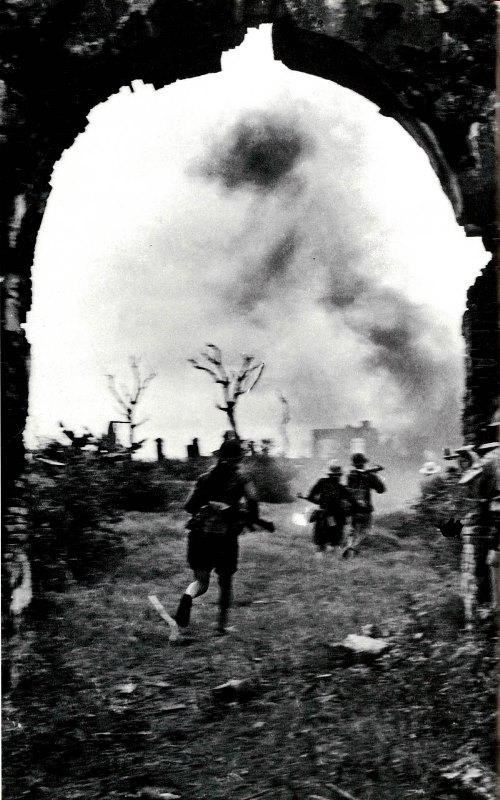 |
| Guerrillas, along with local troops and people, rose up to attack enemy military sub-regions and gain control of Gio Linh, Quang Tri, in 1969. Photo: archive |
PV:Among the battles you participated in, it seems that the battle at Quan Ngang (Gio Linh, Quang Tri) left the most special memories and was also the battle with the most losses?
Veteran Tran Dai Nghia:In April 1969, we entered Quang Tri, and in June 1969, we were ordered to destroy the enemy artillery battalion in Quan Ngang (Gio Linh, Quang Tri). Quan Ngang was then a large-scale base for administrative and military management and operation, serving as a "springboard" to invade the North. During the years of operation at the base, the US - puppet regime focused on expanding the scope of operations and investing in technical means, modern weapons, and strong firepower for the purpose of defense, support, sweeping, and destroying the revolutionary movement in the area.
In addition, they also maintained a large garrison force, including advisors, infantrymen, American artillery... in areas such as Post C1, military sub-regions and administrative areas. The Saigon government gathered people from 5 communes of Gio Ha, Gio My, Gio Le, Gio An, Gio Son into a concentration area in Quan Ngang base, implementing the policy of "rural pacification" and the plan of "draining water to catch fish" in the area south of the demilitarized zone. From Quan Ngang, the enemy plotted to pour artillery into the Vinh Linh fire line in order to suppress the struggle movement of our army and people. To prevent this, we mobilized a special forces battalion to attack the enemy's lair.
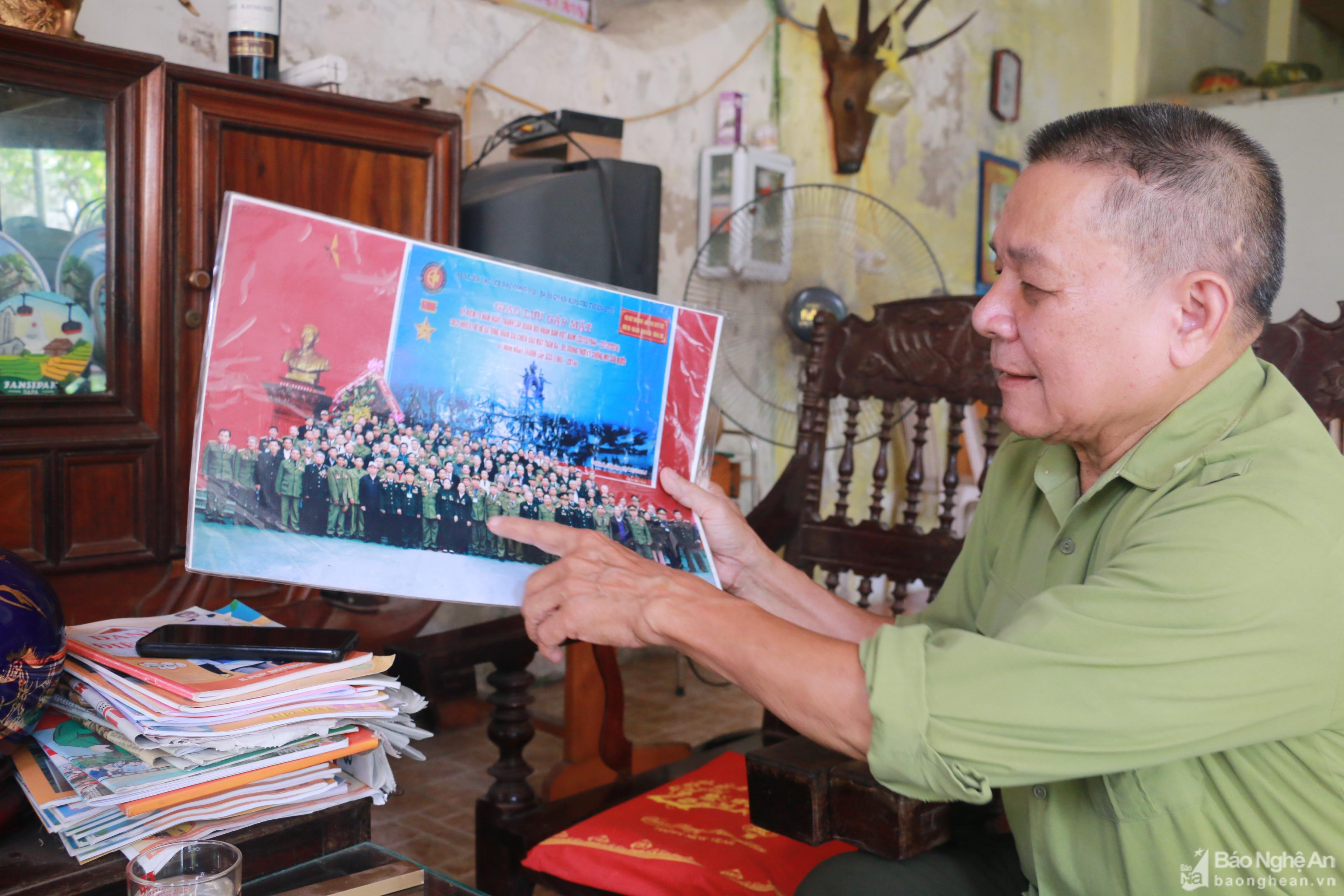 |
Mr. Tran Dai Nghia and the photo at the meeting of the Liaison Committee of special forces soldiers in Quang Tri. Photo: My Ha |
At that time, I was just a soldier, participating in the first battle, hearing the sound of artillery fire from Vinh Linh along the Ben Hai River was terrible, the sound of artillery explosions was deafening. Both sides were fighting, the special forces attacked deep into the enemy's lair. Outside, there were layers of barbed wire, up to 9 fences but we only reached the 7th fence. The fighting was fierce from the first minutes but the enemy's firepower was too strong so we could only control part of the battlefield. This was also the most damaging battle when nearly 100 special forces soldiers were sacrificed.
After this battle, at the end of September 1969, we also had an unforgettable battle, which was the battle at Dau Mau bridge in Cam Lo district. I remember, at that time Uncle Ho had just passed away and our unit was determined to "turn grief into action". At that time, I was a B40 gunner, carrying 4 bullets, crossing Cam Lo river to join the battle. In this battle, we won a great victory and later I received a medal.
PV:Sir, Quang Tri was one of the fiercest battlefields. When facing the enemy, did you ever falter?
Veteran Tran Dai Nghia:As I said, the special forces are a special force, infiltrating deep into the enemy's heartland, so they always face danger. I remember, after a battle, 8 of us special forces were stuck by the Ben Hai River. While trying to cross the river to the rear, we discovered 13 enemy tanks approaching. I was the Company Commander at that time, and I told my comrades that if the enemy discovered us, each of us with the few weapons we had left would have to fight to the end. If we were unfortunately surrounded by the enemy, we had to be ready to sacrifice ourselves, absolutely not letting them fall into the enemy's hands. With our experience in disguise and hiding, we were able to outwit the enemy and preserve our forces.
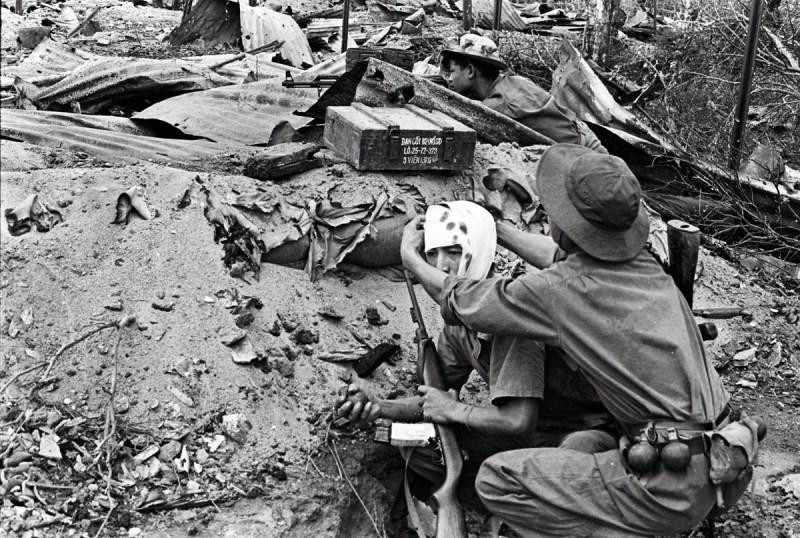 |
Soldiers wounded while fighting on the Quang Tri battlefield. Photo: archive |
During the years of fighting, we faced many dangers. In 1971, while participating in the battle at Hill 288, I was discovered and ambushed by the enemy while I was conducting reconnaissance on the road. That time, I was wounded in the head and hand. After being cured, I fought with my comrades until the day the South was completely liberated.
As soldiers, we have all had to face life and death many times, and witnessed our comrades sacrifice many times, but we have never wavered, only hoping to defeat the enemy to gain independence and freedom for the country. Moreover, when we became special forces, we were determined to go and never return.
Pain for teammates
PV:Sir, the war has been over for more than 40 years, but every time I think back to the war that you and your comrades went through, what worries you the most?
Formerwarrior Tran Dai Nghia: As I said, my comrades and I have been through many battles. There were victories, defeats, and many sacrifices. There were people like my battalion commander, in just a split second, I saw him get shot through the body and fall right before my eyes.
Later, many of my comrades also remained on the battlefield. I went with my comrades’ families many times to the old battlefield to look for their remains but failed. Now every year on July 27, I go to the homes of some of my comrades in Vu Quang (Ha Tinh) to burn incense in memory.
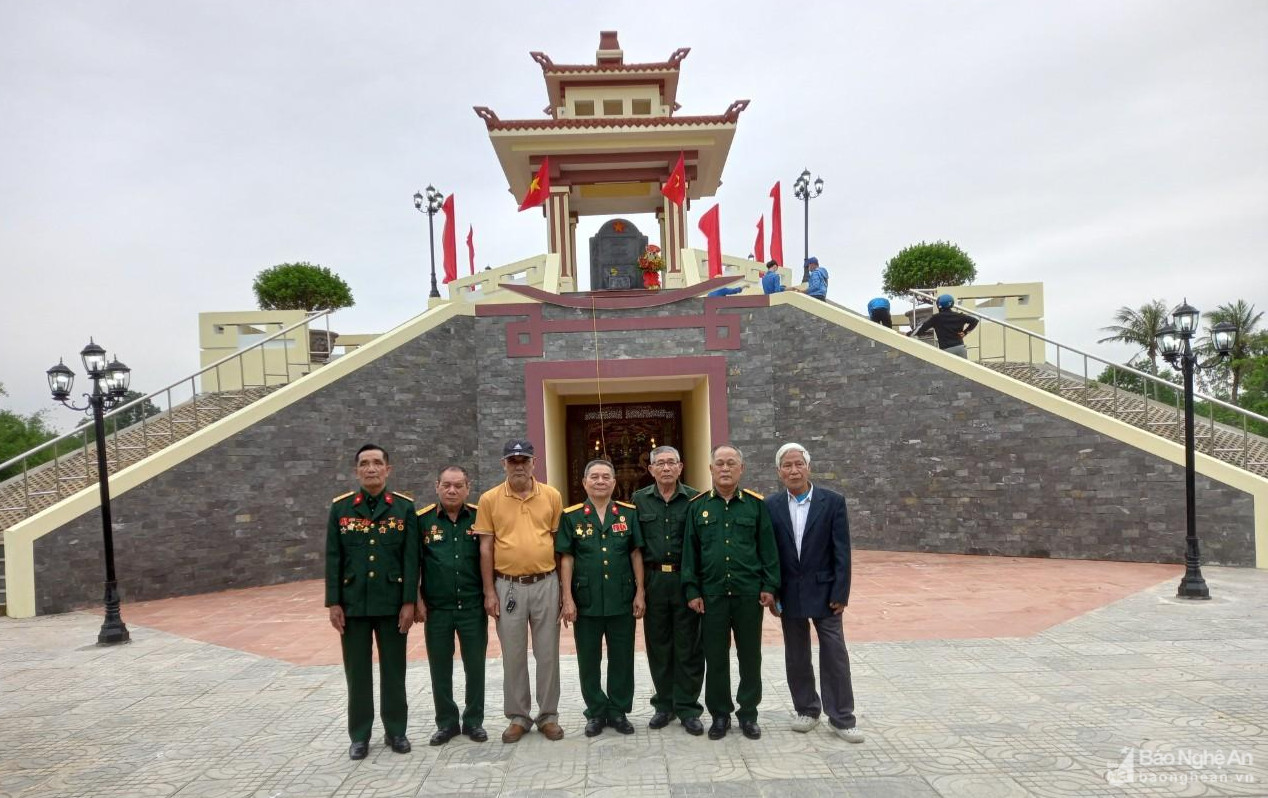 |
Mr. Tran Dai Nghia (center) and his comrades at the inauguration ceremony of Quan Ngang Memorial. Photo: NVCC |
In 2014, although the conditions were still very difficult, I tried to connect with all the special forces soldiers of Battalion 33 and organized a meeting in Vinh city. It was a very memorable event, we met again after so many years of fighting. Many people, including me, could not hold back their tears. Those were the years that left an indelible mark on each of us, an opportunity for us to review the feats and hardships, the sacrifices in the resistance war against the US to save the country.
PV:It is known that 3 years ago, People's Armed Forces Hero Truong Duc Hai, along with him and his former comrades, started building the memorial in Quan Ngang and it has now been completed. Could you share about this particularly meaningful project?
Veteran Tran Dai Nghia:Based on the responsibility of the living and the affection for comrades and teammates, after the country's reunification, Hero of the Armed Forces Truong Duc Hai proposed to build a monument or a stele house to commemorate the heroes and martyrs who sacrificed before the Gio Linh homeland campaign was completely liberated, as a place for the lucky soldiers who survived to visit their comrades, and as a place to educate the younger generation about revolutionary traditions. From Truong Duc Hai's idea, after 9 years of launching from the South to the North, by March 2022, the stele house was completed in the Quan Ngang Historical Relic Site.
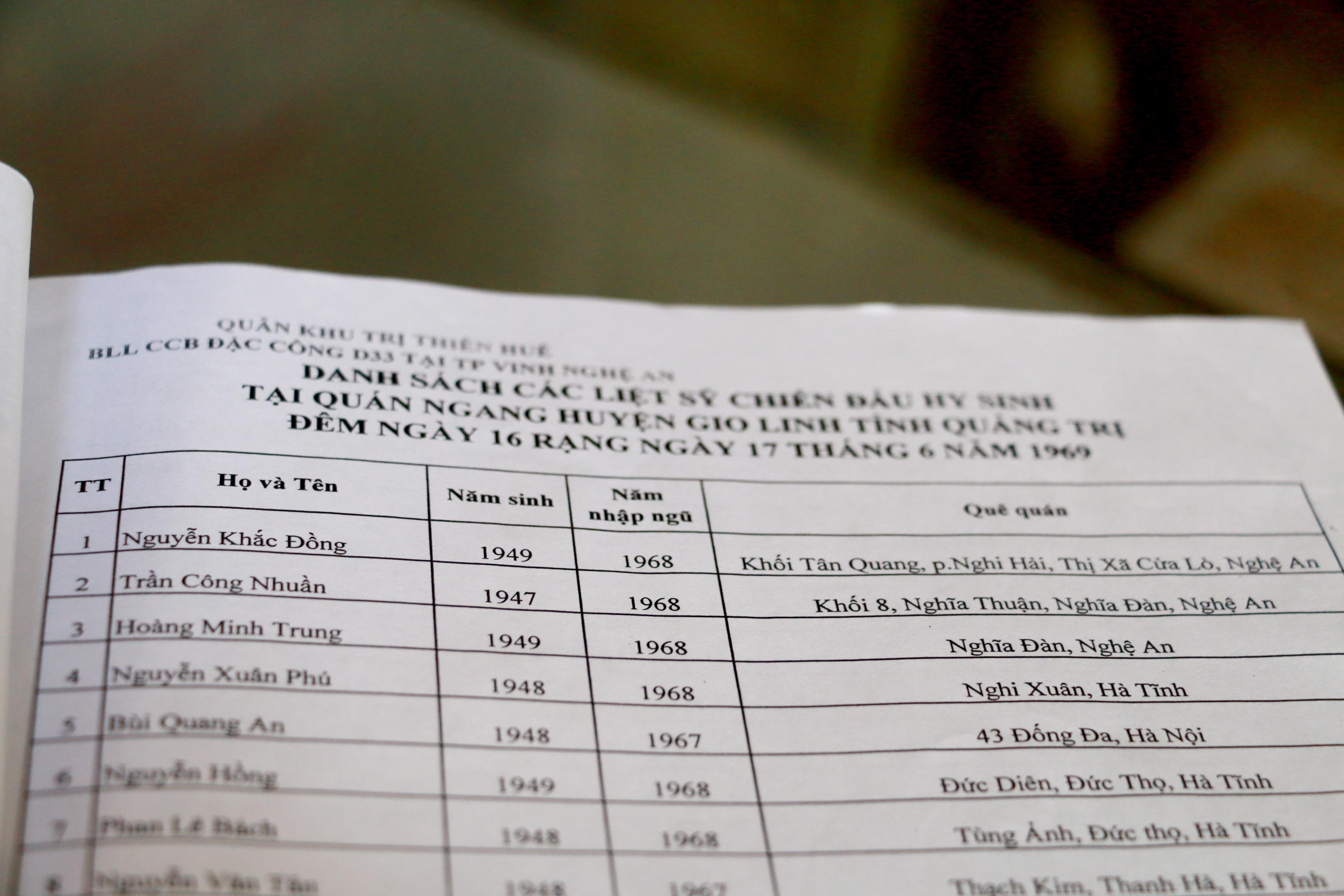 |
The list of fallen comrades was compiled by Mr. Tran Dai Nghia with the hope of finding complete information and making a memorial stele at the common grave of martyrs in Quang Tri. Photo: My Ha |
During the construction process, thanks to the connection of my teammates, Mr. Truong Duc Hai and I were able to contact each other and I was able to provide him with a list and names of 36 martyrs out of 120 martyrs who heroically fought and sacrificed in the battle at the artillery base in Quan Ngang to hold a memorial service and pray for the heroic martyrs.
PV:For nearly 10 years, as the Chief of Liaison of Battalion 33, you have been very concerned about your former comrades who have sacrificed their lives. Can you share what you have done for your comrades?
Veteran Tran Dai Nghia:I retired in 1988 with the rank of Major and then spent more than twenty years involved in the local movement, in many different roles. During the years of peace, although life was still very difficult, I always thought about my old comrades, especially those who sacrificed in Quan Ngang and many other places in Quang Tri. Through the information I found, I also learned that many martyrs who were my comrades who sacrificed in Quang Tri could not be brought back to their hometown. They were buried together in a mass grave, many without names, without even an address in their hometown.
Thinking of my comrades, when I was 70 years old, I wrote a letter to the block executive committee and the local government to resign from my duties. After that, I found my old comrades and gathered information to make a list of 120 martyrs who were special forces soldiers who sacrificed their lives in Quang Tri. Part of this list was compiled and engraved at the Quan Ngang Memorial. For the rest, my greatest wish is to contact all the martyrs' families and find their portraits so that I can make a common stele to place at the mass grave in Gio Linh District Cemetery.
PV:This is really not an easy job, is it, sir?
Veteran Tran Dai Nghia:Since the establishment of the Special Forces Liaison Committee, we have not hesitated to contribute our efforts and money to find the graves of martyrs and identify the identities of our former comrades who have died. The work is really difficult, there are cases where we have gone four or five times but still in vain. Time is running out, finding remains will certainly be even more difficult. Therefore, although our work is small, I still hope it will be completed soon so that the families of the martyrs will be somewhat comforted when they return to Gio Linh (Quang Tri) and we will also feel at ease when thinking about our comrades...
P.V:Thank you for joining this conversation and I hope your wish comes true soon!

.jpg)
.jpg)
